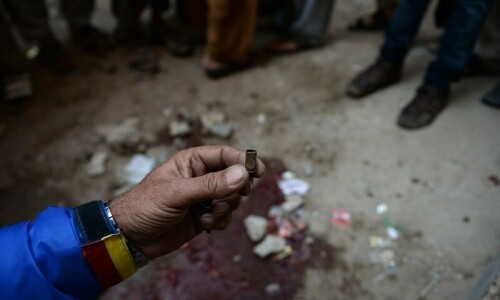MIAMI, Oct 6: A Florida man died on Friday after contracting anthrax, a very rare disease that has been identified as a possible agent for biological warfare but which health officials have said was not the result of an assault in this case.
Dr. Larry Bush, an infectious disease specialist treating the 63-year-old man at the JFK Medical Center in Atlantis near West Palm Beach, told reporters the patient died of “multisystem organ failure” as result of his anthrax infection.
“In essence it was not unexpected,” Bush said of the man’s death, referring to the difficulty of curing the illness once symptoms have developed. Like other health officials treating the case, Bush said the man’s case of anthrax was an isolated one.
The patient, admitted to the JFK Medical Center earlier this week, had been listed as in critical condition from the disease, which was identified as anthrax on Thursday. He had been sedated and on a ventilator.
Health and Human Services Secretary Tommy Thompson told reporters on Thursday there was no evidence of a biological warfare assault involving anthrax, a deadly bacterial disease spread by spores and generally confined to sheep, cattle, horses, goats and pigs. The disease is not contagious.
Anthrax is seen as a likely agent in any biological warfare attack because it can be deployed relatively easily.
Pulmonary anthrax, which infects the lungs and which was the variety contracted by the Florida man, is usually fatal.
Last year a man died in the United States of cutaneous anthrax. That infection begins in the skin and is the most common way humans become infected with the bacteria. Prior to the Florida infection, there had not been a case of pulmonary anthrax in the United States since 1976.
Earlier on Friday, the director of the Palm Beach County Health Department, Dr. Jean Malecki, told NBC’s “Today” program that officials were on alert for any other cases of the disease but still believed the Florida case was “incidental.”
Malecki told NBC authorities had retraced the movements and contacts of the patient for 60 days before his symptoms appeared, and were now taking samples and doing interviews to try to isolate the source of exposure.—Reuters














































Dear visitor, the comments section is undergoing an overhaul and will return soon.